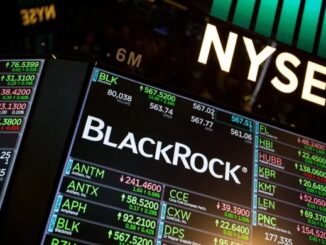
Essay by Eric Worrall
Aussie financial journalist Alan Kohler has suggested allowing more inflation could protect jobs from rising energy prices. But he appears to ignore the economic damage inflation itself would cause.
Alan Kohler: In a warming world, inflation targets need to rise
Alan Kohler6:00am, Dec 5, 2022 Updated: 8:56am, Dec 5
Central banks need to start thinking seriously about raising inflation targets because of climate change.
Global warming is inherently, inescapably, inflationary, so when the countries that have 2 per cent inflation as their formal target get inflation down to 3 per cent, will they cause a global recession for the last 1 per cent, when it’s not caused by excess demand but by climate change?
We’re talking about the United States, Europe, Japan, UK, Norway, Sweden, Switzerland and South Korea, all with 2 per cent targets.
…
The most direct and obvious problem is energy prices. While the marginal cost of renewable energy is zero, which means it tends to be deflationary, the transition from fossil fuels is going to take at least a couple of decades, especially in some parts of the world, and in the meantime the declining scale of coal and gas will push their prices up.
This year’s inflation spike was mainly caused by Russia’s invasion of Ukraine and looks temporary, but when the world finally gets serious about tackling climate change, higher carbon taxes will raise the prices of fossil fuel energy well before it has ceased to be in use, and important.
Which is the whole point of carbon taxes – to make fossil fuel energy more expensive.
…
If anything, higher energy and food prices will do their own demand destruction so central banks will be forced to cut interest rates, not hike them, to preserve employment (which is actually in their charter, unlike climate change).
…
The Ukraine shock was only severe because there are not sufficient alternative sources of supply to absorb the disruption to the supply of Russian gas and petroleum. More investment in domestic fossil fuel resources could have fixed this – but that investment didn’t happen, because of European and Western regulatory hostility to fossil fuel.
What about Alan’s proposal that we protect jobs by allowing higher inflation?
I disagree with Alan Kohler’s assertion that allowing more inflation would protect people’s jobs. Inflation is destroying people’s spending power, and the capacity of businesses to invest and hire people, every bit as much as a rise in interest rates would.
What is the difference between someone not being able to afford their mortgage because of rising interest rates, vs someone not being able to pay their mortgage because inflation has driven up utility bills and the cost of food? How is a business struggling to pay utility bills in any way in a better position than a business struggling to repay debts? Either way, ordinary people lose.
Inflation is worse than high interest rates. Inflation creates perverse incentives which can utterly wreck an economy, such as a perverse incentive to invest in unproductive assets like houses, instead of investing in productive assets like businesses. This leads to widespread economic damage, the stagnation of productive economic sectors like manufacturing, and the creation of enormous asset bubbles, which when they pop cause large scale wealth destruction.
Of course, low interest rates and low inflation would be better than the painful stability of high interest rates, or the economic ruin of high inflation.
Reducing the cost of energy is the path to low inflation and low interest rates. It is not just me saying the price of energy is the key. Australian Reserve Bank Governor Philip Lowe said last week, “… One way of tackling inflation induced by supply-side shocks is to address the supply…”, though admittedly Lowe carefully steered around providing a prescription of how the government should reduce interest rates.
The only short term salvation for people who are struggling to hang on to their homes, or businesses struggling with energy bills, is to rapidly address the underlying problem, the cost of energy. And the only way the cost of energy can be sustainably addressed in the short term, is to unleash fossil fuel investment, by abandoning Net Zero, and massively deregulating investment in energy resources.
<img src=”” title=”Claim: We Must Allow More Inflation to Address Climate Change” />



